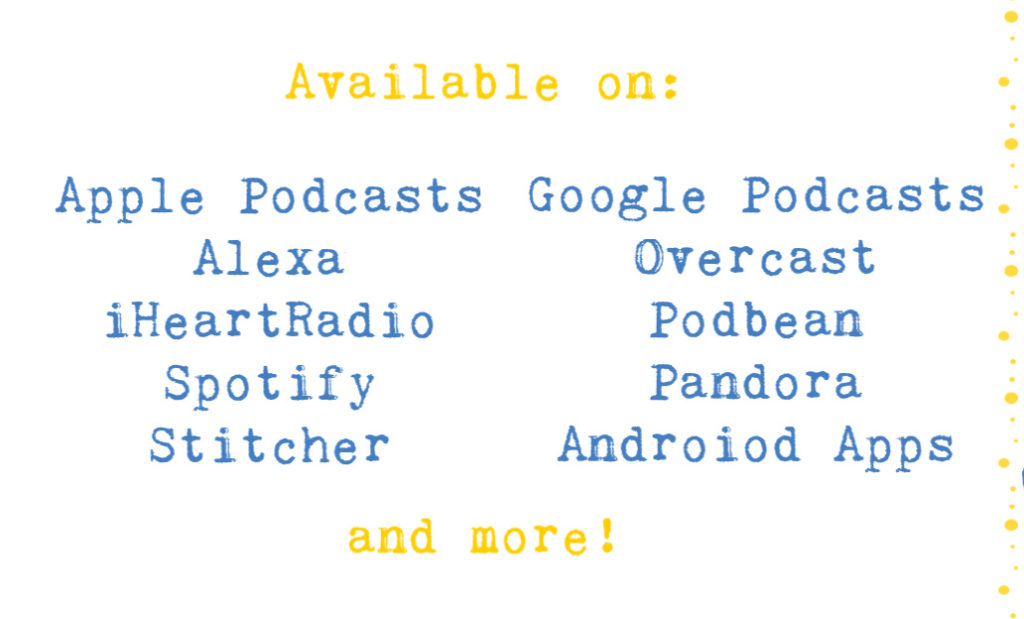This is episode 66, and today we’re talking about making decisions. We talk about that a lot here, partly because it’s such a huge part of our lives. And as I’ve talked with my husband Lee and other friends about the decisions they make and how they make those decisions, I’ve noticed we all take those steps at different speeds. So today let’s talk through what personality factors go into our decision making speeds, what can really be at the heart of slow or fast decision making, and four questions to ask when making a decision.

Quick Links:
Episodes You Might Also Enjoy:
- 033: How to Make a Decision about the Upcoming School Year (or make any hard decision)
- 026: The Decision Fatigue We’ll Face as We Adjust to Life after the Pandemic
- 006: How Decision Fatigue Leads to Caregiver Burnout and How to Eliminate It

Transcript:
April 26th- episode 66 – Help for Fast and Slow Decision Makers
Hi friends, this is Self-Care and Soul Care for the Caregiver, and I’m your host Sandra Peoples. To us, self-care isn’t a luxury—it’s a necessity. We need to take better care of ourselves so we can care for those God has entrusted to us.
This is episode 66, and today we’re talking about making decisions. We talk about that a lot here, partly because it’s such a huge part of our lives. And as I’ve talked with my husband Lee and other friends about the decisions they make and how they make those decisions, I’ve noticed we all take those steps at different speeds. So today let’s talk through what personality factors go into our decision making speeds, what can really be at the heart of slow or fast decision making, and four questions to ask when making a decision.
I thought about not revealing if I’m a fast decision maker or a slow decision maker until the end, but Lee reminded me of a story that made me think you’d probably be able to tell right away. When we lived in Pennsylvania, we were looking for a house to buy. We had seen quite a few, and I was getting discouraged about the whole process. One afternoon, our agent made a few appointments for us. We walked into the first one, and I was feeling pretty good about it. It was a split-level house, and as I walked around, I kept feeling better and better. I called out to Lee in the other room, “This is it!” He said, “It? As in this is the one?” “Yep,” I answered. “Do you want to see the downstairs?” “Sure, but this is it.” So he turned to our agent and said, “This is the one. We can cancel the rest of the appointments.” Clearly, I am a fast decision maker.
Now, Lee is a slow decision maker. He was pretty fast in that moment to agree with my decision, or at least willing to see how it played out, but normally we make decisions at such different speeds, it can be frustrating. I’ll talk through that more in a minute, but let’s remember that God, in His wisdom, often puts opposites together in marriages, friendships, and work relationships, doesn’t He? Fast or slow, we have to learn how to work with our opposites in decision making and lots of other areas of life. So the advice we’ll talk through today helps us when it comes to making decisions for ourselves, but also when our decisions are made with others.
Let’s start with knowing our tendencies. I probably didn’t realize I was a fast decision maker until I was around slower decision makers. I thought everyone moved at pretty much the same speed—my speed. One thing that helped open my eyes to the ways others process information and make decisions is Gretchen Rubin’s four tendency framework. I’ve talked about it on the podcast before so you may be familiar with it, but truly, it’s super helpful to know your tendency. The options are Upholder, Questioner, Obliger, or Rebel, and they relate to how you respond to external and internal expectations. Gretchen has a quiz for it on her website that I’ll link to in the shownotes. I took it again just to see if it’s changed in the years since I read her book. I am an upholder, which means I am motivated by internal expectations and external motivations. Here’s part of my description: Upholders respond readily to outer and inner expectations. They wake up and think: “What’s on the schedule and the to-do list for today?” They want to know what’s expected of them, and to meet those expectations. They avoid making mistakes or letting people down—including themselves.
How does that influence my decision making? It shows that I can be convinced by my own motivations just as easily as outside motivations. In fact, I tend to be more motivated by my expectations than the expectations of others. If I think something is the best decision to make, I just make it. I don’t have to talk through it with anyone. You can understand how this would be a challenge when it comes to decisions that affect more than just me! I avoided group work as much as possible in school, but in life, group work happens. It happens in families, jobs, ministries, book clubs—anywhere people are making decisions together.
Lee is more of an obliger. He likes group work, collaboration, and accountability. An example of our differences: I work out with a YouTube video in our living room. Alone. He works out at a boxing gym with people he knows from church who will text to say “Are you coming?” and cheer him on while he’s there.
When we know our tendency when it comes to motivation, we think about how it applies to our decision making. Lee likes consensus when it comes to decision making. Other people agreeing with his decisions confirms that it’s the right decision. Other people agreeing with my decisions doesn’t make much difference to me. There are other factors at play too. He is an extrovert, I am an introvert. He’s a verbal processor. I’m whatever the opposite of that is. A silent processor? Oh, I paused to google it. It’s internal and external. I’m internal, and he’s external.
The first step to take today as we talk about decision making is to know yourself—your speed, your tendency, and your need for collaboration (or lack of need). Take time to reflect on this. Then we can move on to advice for both slow and fast decision makers.
The advice for both views of thought can start at the same place—what’s at the heart of your motivation when making decisions? Is there a fear you can put your finger on? I’ve thought a lot about this in my own life. I don’t want to talk about this too long because I know not all of you like the enneagram as much as I do, but my personality type as described by my enneagram helps me know my fear when it comes to decision making, and it gives me a hint about Lee’s fear as well. I want to be seen as competent. Lee wants to be seen as popular. (I’m an enneagram 1 and he’s a 3 if that means anything to you.)
I’m not using either of these descriptions as a negative. Competency is good. Being good at things is a positive. Popularity, when it just means that people like and respect you, is good. But when it gets too strong in our lives and becomes a fear—the fear of not being seen as good at something or the fear of people not liking you—that fear isn’t a good motivator for making decisions. For me, wanting to appear competent can mean I make a decision fast so that no one will know I need help making it. For Lee, wanting everyone he knows to agree with the decision he’s making can be an impossible goal. Can you relate to our struggle in this? Can you figure out your own fear? Maybe scarcity is a motivator for you—you make a decision fast because you’re afraid if you don’t, whatever you want will run out. Maybe jealousy is a motivator. You make a decision not because it’s best for you, but you see it sure seems to have worked out for someone else and you want what they have. Maybe you struggle because you always doubt yourself and want to do more and more research. Or maybe you have so much pride in yourself, that no one else is smart enough to help you make a decision. Ask the Holy Spirit to reveal to you what could be at the heart of your decision making tendency. He wants you to make decisions from a place of peace and trust in God’s plan for your life. So He will help you dig deep and weed out whatever hinders that trust.
Ok, we’ve talked about our personality types when it comes to decision making. We’ve talked about our fears. Now let’s get really practical with the advice. If you clicked play because you want to know how to speed up decision making or slow it down, I hope this will be helpful. It has been for us.
Let’s ask these questions:
- Is there a deadline for making this decision?
- Who is affected by this decision?
- What is at the heart of this decision?
- How do I envision the best possible outcome?
Let’s work through these:
- Is there a deadline for making this decision? Deadlines are an external motivator that are very helpful! If you have a deadline, you can reverse engineer the decision making process to meet the deadline. If not, would creating a deadline for yourself help motivate you if you tend to make decisions slowly? If creating your own deadline would be helpful and you need external motivation, share that deadline with someone else who will encourage you to be accountable to it. If you’re a quick decision maker and there isn’t a deadline, ask yourself why you feel rushed to make the decision. (It goes back to the fears we’ve talked about.) There’s a line from Hamilton that often goes through my head, “Why do you write like you’re running out of time?” I have to remind myself I’m not running out of time. I can meet deadlines without feeling rushed. I can take all the time I need when there isn’t a deadline. Deadlines are tools to help but not masters over everything.
- Who is affected by this decision? Just you? Your family? Friends? People you work with? This is a big consideration for Lee because he’s a pastor. Collaboration is a huge part of decision making for him. It’s much easier to make a decision WITH the pastoral staff, the other leadership, and the entire church than it is to make decisions FOR them. His goal isn’t to force other people into decisions they aren’t ready for. That means his timeline may be slower. And for the sake of buy in, that’s ok! Other times, the goal isn’t collaboration. The goal is to make the best decision possible for a small amount of people or just for yourself. And you may not value yourself enough when it comes to making decisions. For example, deciding to say no to something you really don’t have time for. Your time is valuable. It’s just as valuable as anyone else’s. Remember that! Often, more than one group is affected by the decision. If you’re asked to do something new that will take time away from something else, those you are saying yes to and those you are saying no to are both affected. Do you need to slow down and ask those who are affected by the decision for their input? Do you need to ask for help? Or do you need to value yourself and your opinions enough to move forward with a quicker decision with confidence?
- What is at the heart of this decision? Is your motivation stress, worry, guilt, or jealousy? Are those feelings trying to communicate a message that you need to pay attention to before you jump into making a decision? Prayer is so important at this step. Because stress, worry, guilt, and jealousy are not from God. We know the fruit that comes from Him—love, joy, peace, patience, kindness, goodness, faithfulness, gentleness, and self-control. This will be produced in you and through you as you make the best decisions for yourself and others.
- How do I envision the best possible outcome? You can reverse engineer this too! If it’s a win for everyone, what’s your role in making that happen? If it can’t be a win for everyone, how can you still make it as easy as possible? And if it’s one of those really, really hard decisions that no one will be happy with in the short term, how can you help yourself and others see what’s possible in the long term? Or how can you prioritize those who will be most impacted? You may want to journal through this question or talk about it with others. Ask God for wisdom and confidence in Him.
Now that we’ve talked through them, let me list this one more time and then I’ll share how I used them to make a recent decision:
- Is there a deadline for making this decision?
- Who is affected by this decision?
- What is at the heart of this decision?
- How do I envision the best possible outcome?
A couple weeks ago, I was trying to figure out what the future of this podcast should be. Should I keep doing it? Should I stop or pause or pivot? I asked myself these questions to figure it out.
- Is there a deadline for making this decision? Not really. There are natural times that the decision could be made, like when school gets out or the year ends. But there isn’t a deadline. As we talked about, I make decisions fast. So realizing there isn’t a deadline, that I don’t have to decide about this right now, was helpful.
- Who is affected by this decision? My listeners, of course. I’m super thankful for you and enjoy the time we spend together each week. But my family is also affected. It has started taking over my Sunday afternoons because I started a new job in Jan. and my weekdays are fuller than they were last year. James, our son with autism, is happy and playing right now with Lee hanging out with him. But if he needs me or we need to get something else done on a Sunday afternoon, I need to prioritize their needs. We aren’t financially impacted by me doing the podcast or not. But saying yes to this means I’m saying no to other things.
- What is at the heart of this decision? How do I feel about doing the podcast? Does it give energy or drain energy? Do I look forward to it or dreed it? What’s my fear if I stop? What’s my hope if I keep going? Is it producing the fruit of the Spirit in me and in others? I enjoy this podcast so much. It feels like a fun hobby instead of a job. And hobbies are important! But sometimes a little boost is needed to keep me motivated. And in the podcasting world, that boost comes from audience size and interaction. Two things I can’t really control. To keep enjoying it, I may need to find other factors to keep me motivated and energized.
- And finally, how do I envision the best possible outcome? The best possible outcome is that I keep doing it. But the schedule of doing it works better for my family. And it’s in line with long term goals I have, not because I want to make a hobby into a side hustle, but because I have some long term goals that are important to me, and spending time on this might take time away from those unless I can find a way for them to complement each other.
So what decision did I make? Well, I’ll tell you honestly that before I worked through these questions, I had made a quick decision to stop. I hadn’t talked through it with anyone. I reacted to feeling overwhelmed and tried to control something—anything! And this was something I could stop. But it didn’t feel right. So I talked to my friend Becky Davidson from Rising Above Ministries. I value her experience and wisdom. She helped me see it isn’t all or nothing—that I can prioritize time with my family and still do what I enjoy doing. After that conversation, a few conversations with Lee, and lots of prayer, I have decided to take the summer mostly-off from podcasting. James will be home more, which will give me less time to work. I have a book proposal I’d like to finish in the next couple of months to see what God will do with that project. I want more restful Sundays. But I also want to record when I have a topic I can’t wait to share with you! So I have episodes planned for the next couple of weeks, and then I’ll take a break! I’ll probably release an episode or two in June and July, and then be back regularly in August.
What’s the result of making this decision? It’s peace for sure. And hope that we can stay in touch even through our Facebook group, Abiding Caregiver, and on Instagram. You’ll find links for both in the shownotes at sandrapeoples.com/thepodcast under episode 66. Let’s pray before we end our time together today:
God, thank You for the opportunity to reflect on our tendencies when it comes to decision making. You created us with preferences and skills and even hesitations and reluctances. You brought us into relationships with people who often react differently than we do in the same circumstances. All of this is part of your good plan for us. Help us to make decisions that honor You and reflect the priorities You have given us during this season. We ask for wisdom, for patience, for sensitivity—for whatever is required to make each decision we’re faced with. Thank You for the peace You give when we rest in your plan for us. In Jesus’s name, amen.
Thanks, friends, for spending time with me today! Especially since this episode is longer than usual! I’m praying for you as you care for your family and make time for others who are important to you. I’ll meet you back here next week for another reminder of how we can practically live out our calling to abide in Christ!


